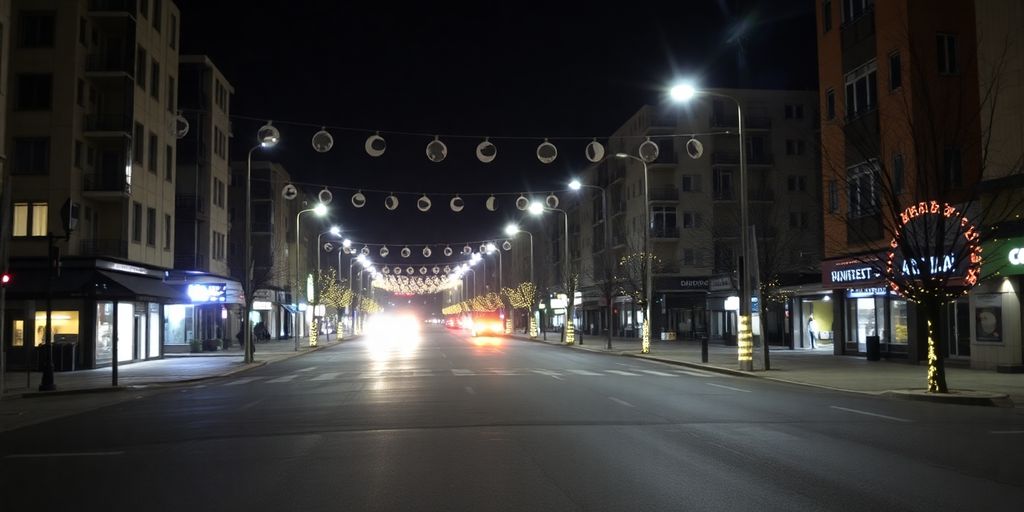In a recent wave of criticism, Prishtina, the capital of Kosovo, has been called out for its apparent neglect in decorating the city for Ramadan, contrasting sharply with the festive displays seen during Christmas and the end-of-year holidays. This disparity has sparked discussions about inclusivity and representation in public celebrations.
Key Takeaways
- Prishtina has been criticized for not decorating for Ramadan.
- The city traditionally decorates for Christmas and New Year.
- The issue raises questions about cultural representation.
The Context of the Criticism
The criticism emerged prominently on social media, where users highlighted the lack of festive decorations that typically adorn the streets during the holy month of Ramadan. Many residents and observers noted that while the city is beautifully lit and decorated for Christmas, similar efforts are not made for Ramadan, which is a significant period for the Muslim community.
Public Reactions
The public response has been mixed, with many expressing disappointment and calling for more inclusive practices. Some key points from the reactions include:
- Calls for Equality: Many citizens are advocating for equal representation of all religious and cultural celebrations in the city.
- Social Media Outcry: The issue gained traction on platforms like X, where users shared their thoughts and experiences regarding the lack of decorations.
- Cultural Sensitivity: Critics argue that the city should be more sensitive to the diverse cultural and religious backgrounds of its residents.
The Importance of Inclusivity
Inclusivity in public celebrations is crucial for fostering a sense of community and belonging among all citizens. The lack of decorations for Ramadan can be seen as a missed opportunity to celebrate the rich cultural tapestry of Prishtina. By embracing all traditions, the city can promote unity and understanding among its diverse population.
Potential Solutions
To address the concerns raised by the community, several solutions could be considered:
- Collaborative Planning: Engage with local religious and cultural leaders to plan inclusive celebrations.
- Community Involvement: Encourage community members to participate in the decoration process, ensuring that all voices are heard.
- Public Awareness Campaigns: Launch campaigns to educate the public about the significance of Ramadan and the importance of inclusivity in celebrations.
Conclusion
As Prishtina navigates this criticism, it stands at a crossroads where it can choose to embrace inclusivity and celebrate the diversity of its residents. By recognizing and honoring all cultural and religious traditions, the city can foster a more harmonious and united community. The call for decorations during Ramadan is not just about aesthetics; it is about respect, recognition, and the celebration of shared humanity.






